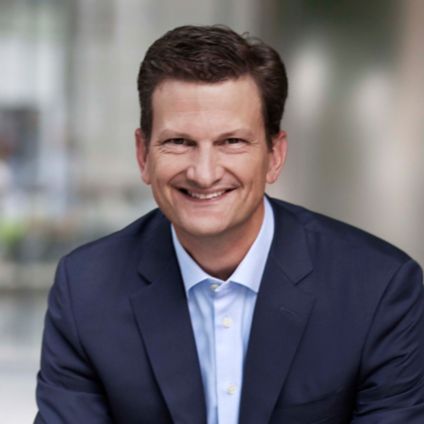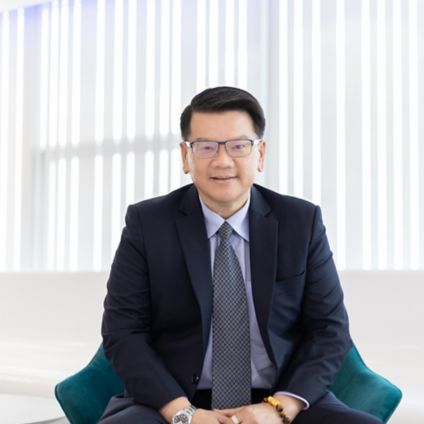Press Release | 26 March 2021
Nearly half of global CEOs don’t expect to see a return to ‘normal’ until 2022: KPMG study
Nearly half of global CEOs don’t expect to see a return to ‘normal’ until 2022: KPMG study
- Majority of CEOs will wait for more than 50 percent of population to be vaccinated before returning to the office.
- Nine out of 10 leaders intend to ask their employees to report when they have been vaccinated in order to protect the wider workforce.
- A steep decline in the appetite of global executives to downsize their company’s physical footprint as global CEOs reconsider the need for in-person business to resume when countries emerge from the pandemic.
CEOs of the world’s most influential companies are planning what the ‘new reality’ will look like post-pandemic. The 2021 KPMG CEO Outlook Pulse Survey finds that almost half (45 percent) of global executives do not expect to see a return to a ‘normal’ course of business until sometime in 2022, as opposed to nearly one-third (31 percent) who anticipate this will happen later this year. The changes prompted by the pandemic have resulted in one-quarter (24 percent) of CEOs saying that their business model has been changed forever by the global pandemic.
The study conducted by KPMG in February and March of this year asked 500 global CEOs about their response to the pandemic and the outlook over a 3-year horizon. A majority (55 percent) of CEOs are concerned about employees’ access to a COVID-19 vaccine, which is influencing their outlook of when employees will return to the workplace. A significant majority (90 percent) of CEOs are considering asking employees to report when they have been vaccinated, which may help organizations consider measures to protect their workforce. However, one-third (34 percent) of global executives are worried about misinformation on COVID-19 vaccine safety and the potential this may have on employees choosing not to have it administered.
Key Findings
Government and vaccination rates driving decision-making
Three-quarters (76 percent) of CEOs see government encouragement for businesses to return to ‘normal’ as the prompt for businesses to ask staff to return to the workplace. In addition, 61 percent of global executives said that they will also need to see a successful (over 50 percent of the population vaccinated) COVID-19 vaccine rollout in key markets before taking any action toward a return to offices. When employees can safely return to workplaces, one-fifth of companies (21 percent) are looking to institute additional precautionary measures by asking clients and other in-person visitors to inform them of their vaccination status.
Global CEOs are less likely to downsize physical footprint compared to 6 months ago
The research finds that only 17 percent of global executives are looking to downsize their office space as a result of the pandemic. In contrast, 69 percent of CEOs surveyed in August 2020 said they planned to reduce their office space over 3 years, which demonstrates that either office downsizings have taken place or, as the pandemic has drawn on, strategies have changed.
Global executives remain apprehensive about a fully remote workforce
CEOs are considering what the new reality will look like, but post-COVID, only three in 10 (30 percent) of global executives are considering a hybrid model of working for their staff, where most employees work remotely 2–3 days a week. As a result, only one-fifth (21 percent) of businesses are looking to hire talent that works predominantly remotely, which is a significant shift from last year (73 percent in 2020).
Cyber security is now the top concern for CEOs
During lockdown, remote working has become the norm, which poses new data security risks to organizations. As a result, global business leaders identified cyber security as the top concern impacting their growth and operations over a 3-year period. Cyber security was named ahead of regulatory, tax and supply chain concerns.
ESG continues to climb up the corporate agenda
With COP26 taking place this year and the US re-joining the Paris Accord, 49 percent of CEOs plan to put in place more stringent ESG practices. A vast majority (89 percent) of business leaders are focused on locking in the sustainability and climate change gains their companies have made as a result of the pandemic. Nearly all (96 percent) global executives are looking to upweight their focus towards the social component of their ESG programs.
About KPMG’s CEO Outlook Pulse Survey
The 2021 CEO Outlook Pulse Survey asks CEOs from the world’s most influential companies to provide their 3-year outlook on the economic and business landscape, as well as the ongoing COVID-19 pandemic. This Pulse Survey looks at how their views have evolved since July/August 2020.
Five hundred CEOs from 11 key markets (Australia, Canada, China, France, Germany, India, Italy, Japan, Spain, the UK and the US) were surveyed from 29 January–4 March 2021. All respondents represent organizations that have annual revenues greater than US$500M and 35 percent of the companies surveyed have more than US$10B in annual revenue. NOTE: some figures may not add up to 100 percent due to rounding.
About KPMG
KPMG is a global organization of independent professional services firms providing Audit, Tax and Advisory services. We operate in 146 countries and territories and in FY20 had close to 227,000 people working in member firms around the world. Each KPMG firm is a legally distinct and separate entity and describes itself as such.
KPMG International Limited is a private English company limited by guarantee. KPMG International Limited and its related entities do not provide services to clients.
About KPMG in Thailand
KPMG in Thailand, with more than 2,000 professionals offering Audit and Assurance, Legal, Tax, and Advisory services, is a member firm of the KPMG global organization of independent member firms affiliated with KPMG International Limited, a private English company limited by guarantee.
For media inquiries, please contact:
Ploi Phayakvichien
ploi@kpmg.co.th
Connect with us
- Find office locations kpmg.findOfficeLocations
- kpmg.emailUs
- Social media @ KPMG kpmg.socialMedia




